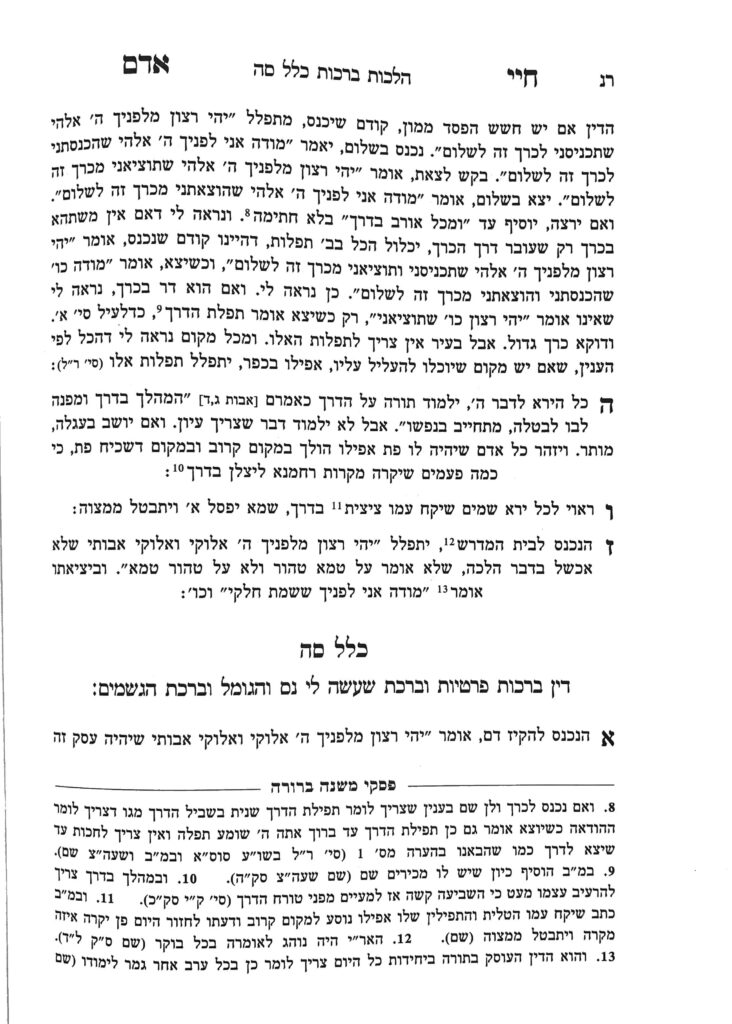We have finished siman 7 and have a few points to discuss regarding tefillas Rebbi Nechunya Ben Hakaneh.
The Aruch Hashulchan asks why nobody seems to recite this tefillah, if the Shulchan Aruch seems to pasken that it should be recited. He answers that if we look carefully at the tefillah, it seems to be primarily written for those paskening halacha. For the average person who is not learning at that level, it may seem irrelevant, so it may be understandable why they do not recite it.
However, according to the Aruch Hashulchan’s answer, anyone who is involved in psak halacha has no excuse not to recite it.
Someone who is busy with learning throughout the day, such as a moreh horaah, may recite the yehi ratzon in the morning and the modeh ani at night. Someone who is sitting down for a learning session and expects to spend a part of their day not engaged in learning should recite the modeh ani at the end of their learning session. If they are able to sit down to learn again, they should repeat the tefillos.
The additional yehi ratzon brought by the Mishnah Berurah, originally from the Taz, is not limited to morei horaah and should be recited by all.
The Shelah Hakadosh would state before learning that he is learning so that he should come lemaaseh (to know how to act practically) and for the sake of yeidas hatorah, knowing Hashem’s torah. He would also add a lesheim yichud. Although chassidim commonly recite it, the Noda BiYehuda was concerned that since the lesheim yichud kabbalistically combines different names of Hashem, if one does not understand what they are doing, they can cause more harm than good. Therefore, the litvish minhag is to refrain from reciting the lesheim yichud, but one may recite the first statement.
If a person is unable to recite the entire tefillah (e.g., they are late for a shiur), the primary components are the phrases לֹא אֶכָּשֵׁל בְּדָבָר הֲלָכָה and שֶׁלֹּא יֶאֱרַע דְּבַר תַּקָּלָה עַל יָדִי. Minimally, a person should try to recite until there.
Summary
- Although the tefillos of Rebbi Nechunya Ben Hakaneh appear to be more pertinent to morei halacha, they can be recited by anyone. Certainly, the tefillah brought in the Mishnah Berurah should be recited by all.
- If one expects to be involved in learning throughout the day, they can recite the yehi ratzon in the morning and the modeh ani at night. If they expect to take a break from learning, they should recite the modeh ani before their break, and recite a new yehi ratzon when they resume their learning.
- One may recite the statement of the Shelah, but the litvish minhag is to refrain from the lesheim yichud.
- If one is unable to recite the entire tefillah, they should minimally recite until לֹא אֶכָּשֵׁל בְּדָבָר הֲלָכָה.



